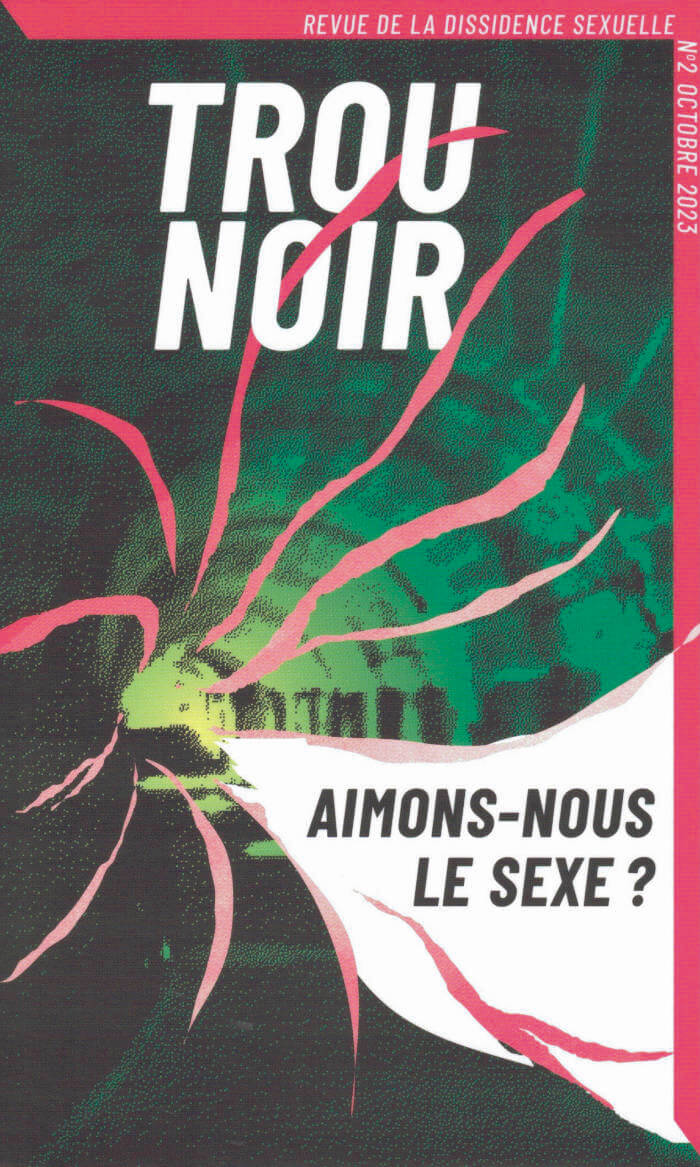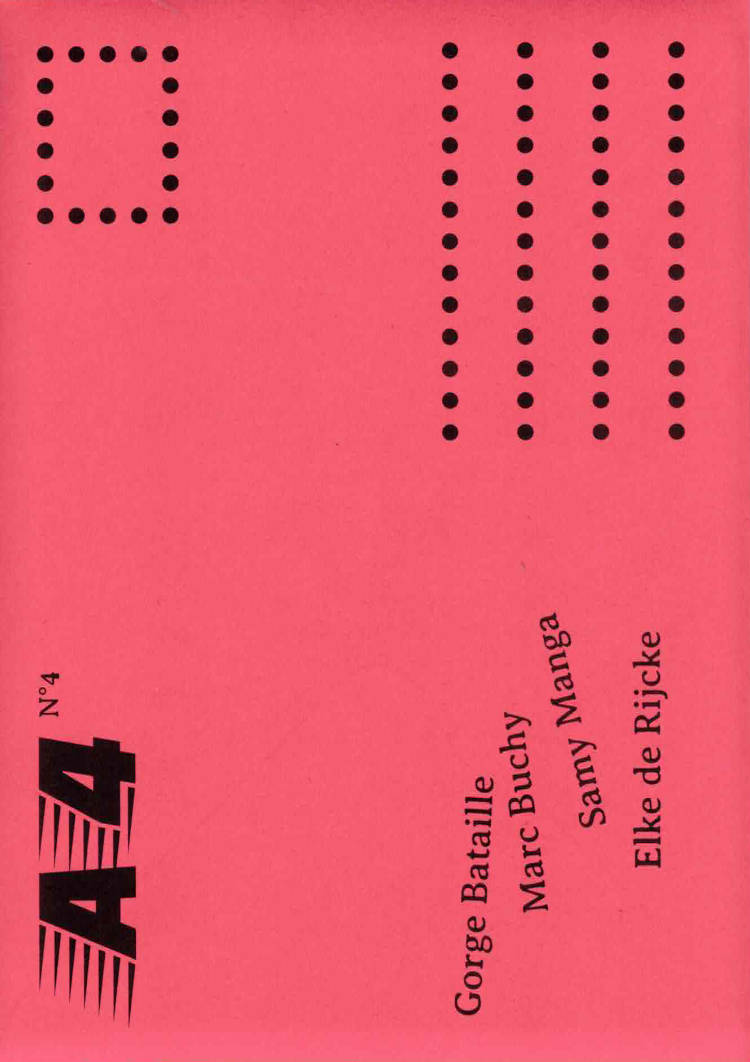
Trou noir, n°2 : Aimons-nous le sexe ?
Trou Noir ed.
Aimons-nous le sexe ? Ce numéro de Trou Noir cherche à explorer ce que le sexe et le politique auraient encore à fricoter ensemble, et à articuler nos paroles sans pour autant les faire se confondre. Bien sûr, répondre « oui » ou « non » à cette question ne relève pas de l’évidence et ne permettra pas de se situer sur une quelconque échelle de la dissidence sexuelle, mais y répondre quand même en allant puiser en soi-même, dans la littérature, dans la recherche, dans l’histoire, dans des expériences de groupe, dans toutes formes susceptibles de nous aider à penser le désir sexuel comme une résistance au pouvoir.
Sommaire
• Correspondance dans la galère de communiquer sur les insectes, le sexe et les faux problèmes – par L. Bigòrra & Brenda Walsh
• Ceci n’est pas une chatte – par Catalina Malabutch
• Fragments scatopolitiques – par Cy Lecerf Maulpoix
• Du sexe et des symbioses – par emma bigé
• Ça ressemble au sexe – par Mickaël Tempête
• Queer cruising – par Gorge Bataille + Saram
• Le caractère destructeur de la sexualité – par Quentin Dubois
• Se dire prosexe – par val flores
